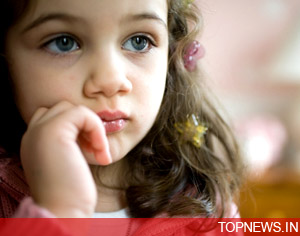Combined Therapy Ideal to Treat Anxiety in Kids
 U.S. researchers said a combination of talk therapy and antidepressant medication was the best treatment for children and adolescents suffering from disabling anxiety disorders.
U.S. researchers said a combination of talk therapy and antidepressant medication was the best treatment for children and adolescents suffering from disabling anxiety disorders.
In the largest government-financed study by the National Institute of Mental Health, experts studied anxiety disorders in children whose anxiety over separation from parents, social situations or other things was causing problems. Researchers tracked 500 patients ages 7 to 17 and found 8 in 10 children who were given the combination therapy showed significant improvement as compared to 6 in 10 who received either only the drug or the talk therapy.
Anxiety in children is a disorder that affects as many as 20 % of children and teenagers in the U.S. and this includes people with separation anxiety, social phobia and generalized anxiety disorder.
Dr. John Walkup of Johns Hopkins University in Baltimore, who worked on the study said, results "clearly showed that combination treatment is the most effective for these children. This suggests that clinicians and families have three good options to consider for young people with anxiety disorders, depending on treatment availability and costs," said Walkup.
The study appears in the New England Journal of Medicine and was the first to establish that talk therapy also known as cognitive behavior therapy or CBT works as well as drugs do. Anne Marie Albano of the New York State Psychiatric Institute and Columbia University Medical Center said, "It's the first time that we have tested the combination of CBT and medication. That's never been done in children. The other thing is the medication came out looking very safe in this population."
Albano said, "We are not talking here about normal fears all kids get. We are talking about intractable anxiety and fear to the point that there is such distress that the child shrinks away from the world."
Psychiatrists estimate up to half of children and adolescents struggling with chronic anxiety do not seem to improve much in treatment when it is only drug based.
Dr. Sanjiv Kumra, director of the child and adolescent psychiatry program at the University of Minnesota, who was not involved in the research said, “It’s surprising that they found such a dramatic difference between combined treatment and the others. I think this should be reassuring for parents interested in finding good treatment for a child, and it should send a message to third-party payers.”
“All of the treatment options employed may be recommended, taking into consideration the family’s treatment preferences” as well as cost and availability, concluded the study authors, led by Dr. John T. Walkup of Johns Hopkins and Dr. Philip C. Kendall of Temple University.